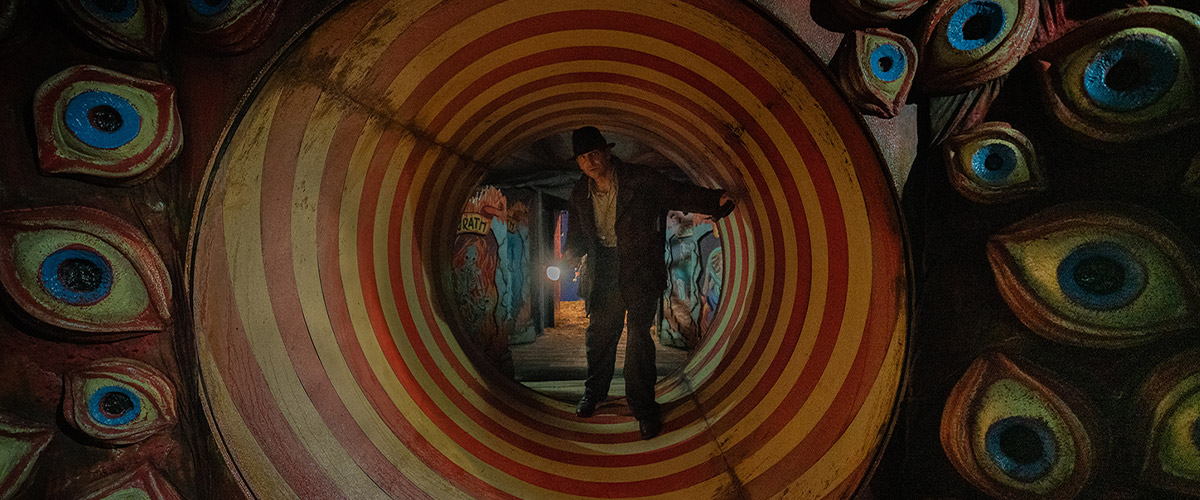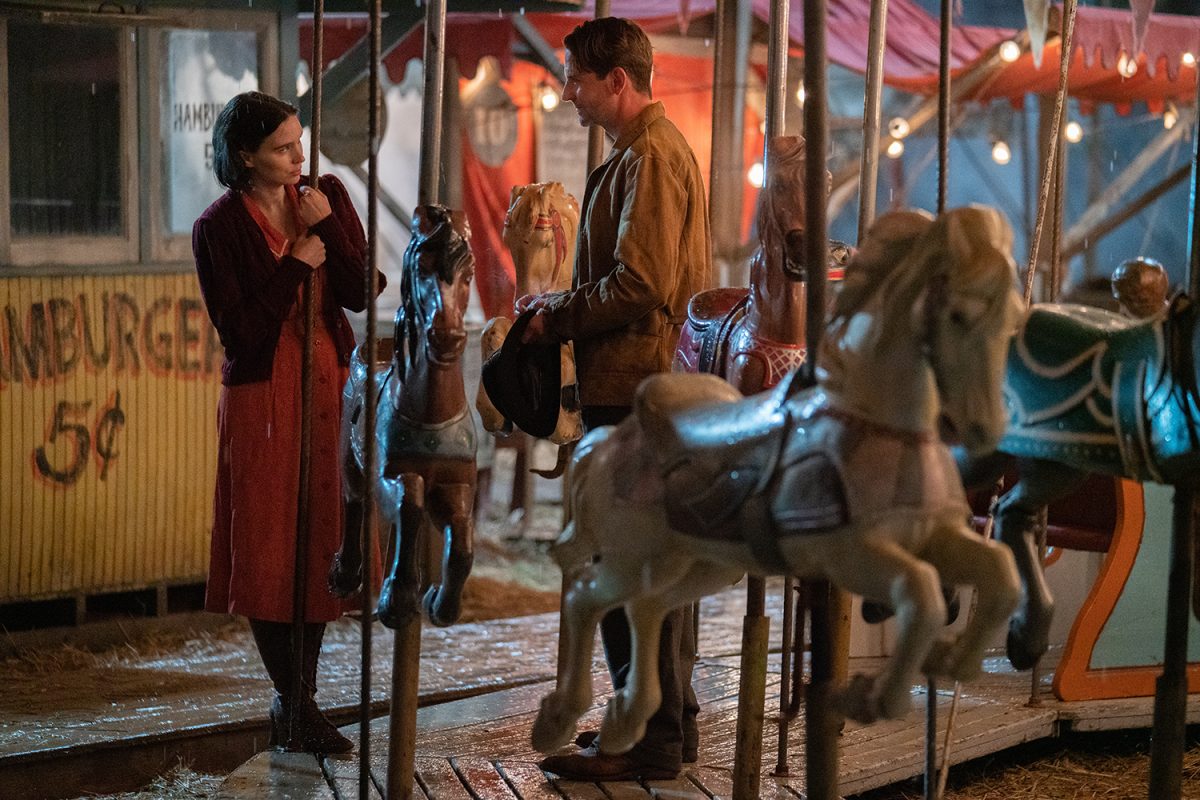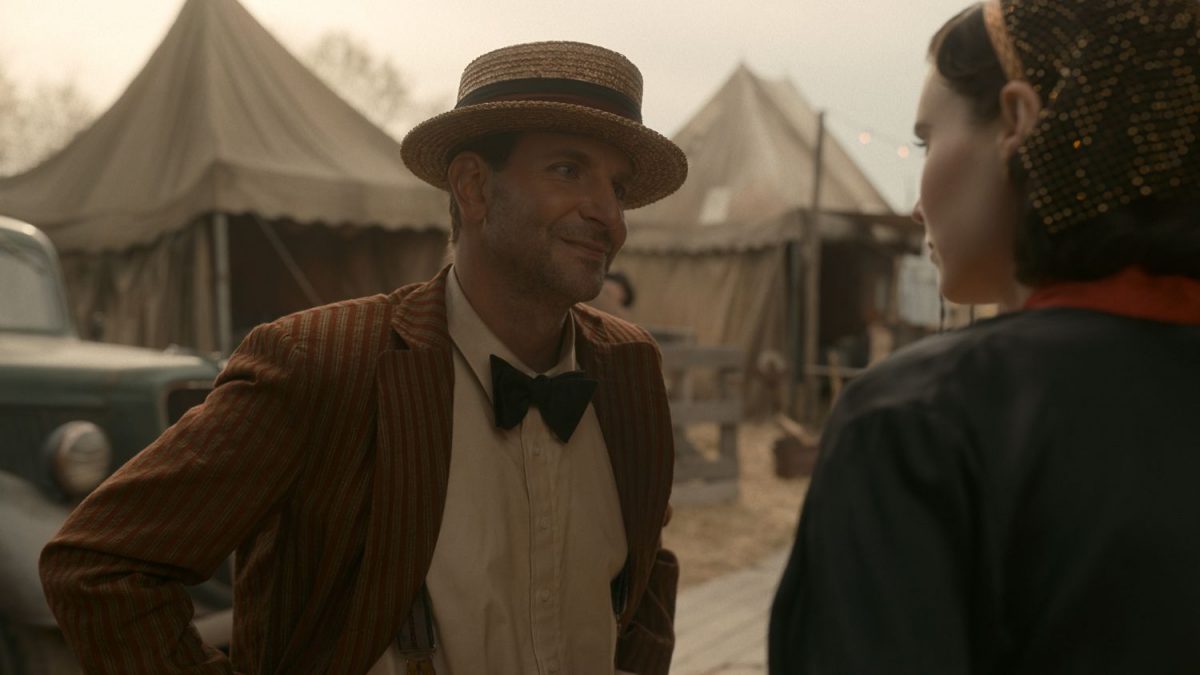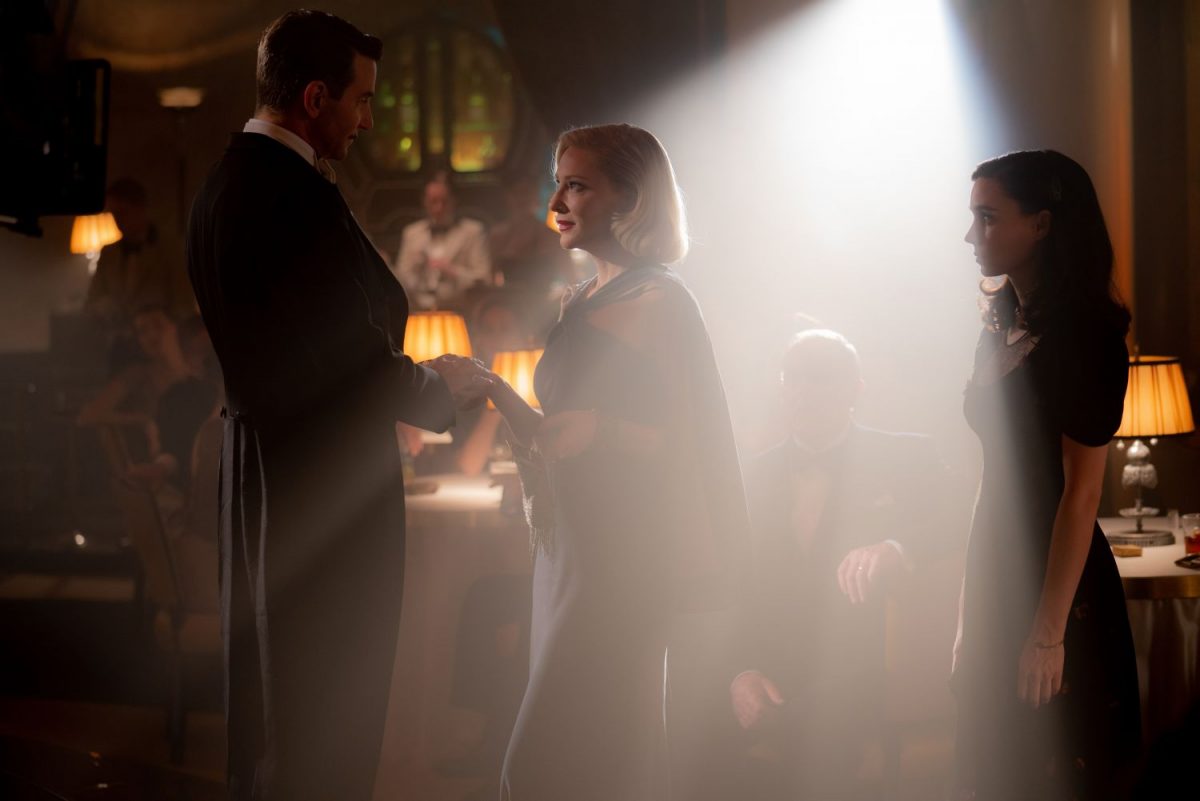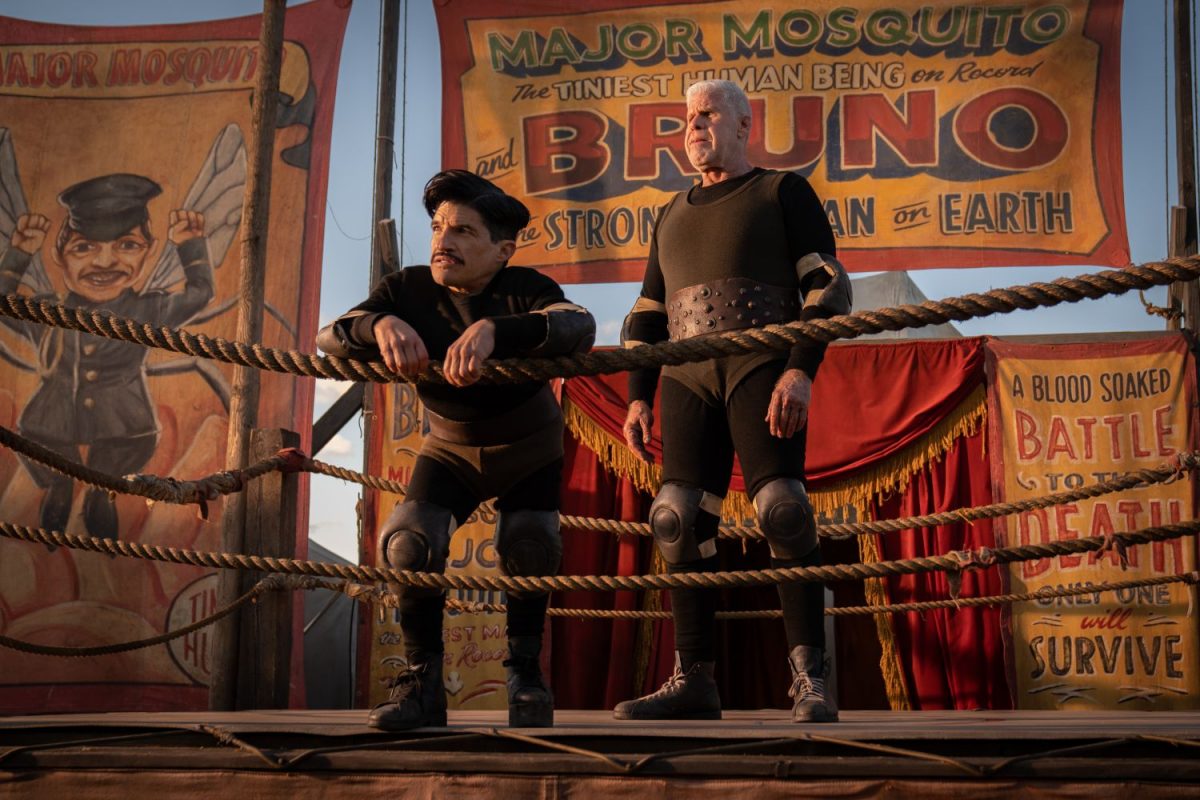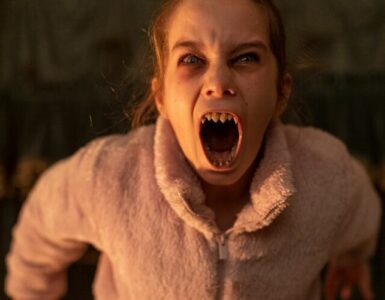What is left after stripping away the dark visual style and private investigator cliche of the noir genre? A cynical presentation of the world where good people are exploited, and ruthlessness is the only way to get ahead of the game.
Guillermo del Toro’s Nightmare Alley is an adaptation of a 1946 novel of the same name, as Stanton Carlisle (Bradley Cooper) is pulled into 1930s carnival life after watching a geek show (in carny-speak, a geek is a performer whose show consists of bizarre or grotesque acts). Instead of using the dark and shadows to hide the seedier, unsightly side of the world, Nightmare Alley drowns out all that with bright, gaudy, colourful lights. The light-filled visuals of the film contrasts strongly with the dark tone of the story, making a point that the deepest darkness lies in the human heart.
The geek is the central symbol of the film for the harsh, dehumanising nature of life. He is depicted as an alcoholic man exploited, taken advantage of, and addled by addiction. When we hear the carnival barker Clem Hoately (Willem Dafoe) deliver his spiel about whether a geek is man or beast at the start of the film, we too become complicit in encouraging the abject treatment of the geek. Because we are interested in watching the geek, in finding out the extent of his animalistic behaviour, and like a car crash, we find ourselves enthralled, unable to look away.
The ending of the film is telegraphed from miles away, almost deliberately so. (Spoilers) When Hoately talks about how a geek is trained – by finding a homeless alcoholic, offering him a temporary job as a fake geek, spiking their alcohol with drugs to get them addicted, it is clear that Carlisle will, by the end of the film, become one.
At that point in the film, Carlisle comes off as a capable and likeable fellow, even if there could be a few skeletons in his closet. It is hard to see how he could ever end up as a despondent wreck of a man, especially when the film depicts him schmoozing Molly Cahill (Rooney Mara), the only character in the film who comes off as a compassionate soul, eloping with her to a big city and making it big with the mentalism techniques he worked hard to learned from Pete Krumbein (David Strathairn).
We see Carlisle doing very well for himself, and even when there are hiccups, his resourcefulness always saves him in the end. However, he bites off more than he can chew when he gets involved with psychologist Lilith Ritter (Cate Blanchett) and the ultra-wealthy and secretive Ezra Grindle (Richard Jenkins). Spurred on by greed, Carlisle made a deal with Ritter who fed him information about rich clients, which Carlisle uses to perform seances for those rich folks.
Then, when Grindle insists on seeing his dead lover materialise, Carlisle realises that he’s forced to go through with the biggest con of his life, which ends up being his undoing as the stakes and the scale become too large for him to handle. Carlisle’s character arc reminds one of Icarus, who flew too close to the sun, and is someone who doesn’t know how to be content with what he has, and is ultimately doomed to fall.
As the audience, we can’t help but look on with this subdued sense of glee and captivation at Carlisle’s damnation, just as the carnival-goers watch the geek show with full interest, glad that they, at least, are not like him. But in taking in the depravity of a person as entertainment, are we not also dehumanising ourselves?
The film is a slow burn, with two and a half hours to chart the rise and fall of Carlisle. The film plods along like a novel, which can be a bit of an acquired taste, especially since it’s two and a half hours long. However, this does provide a breath of fresh air from the overused well-made play structure which Hollywood can’t seem to ever get sick of. While the predictable ending may be a turn-off for some, it is a feature, not a bug. It suggests that even though we know where the film is going, we still can’t look away from it, that we too are part of a cynical noir world where human nature isn’t necessarily good.
Nightmare Alley is also a love letter to carny culture, showing all the eccentric figures, acts, and scams that are present in such an environment, rendering their performances and lingo accurately. However, it neither glamourises nor criticises the culture, instead reveling in the unique type of camaraderie that arises in a place like that, while not shying away from their imperfections. Even though the film is pessimistic about human nature, it shows that despite that, happiness is attainable, just that not everyone will end up so.
GEEK REVIEW SCORE
Summary
Nightmare Alley is a neo-noir film with a predictable ending that may be a turn-off for some. However, it is a feature, not a bug. It shows that the audience too is part of a cynical world where human nature isn’t necessarily good, but makes a subtle point that happiness is attainable despite that.
Overall
8.4/10-
Story - 8/10
8/10
-
Direction - 9/10
9/10
-
Characterisation - 8.5/10
8.5/10
-
Geek Satisfaction - 8/10
8/10

